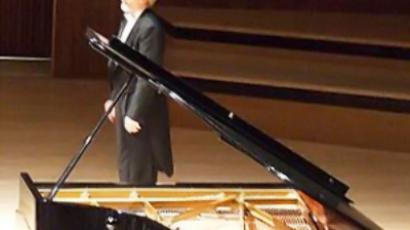Poles apart: Silesians realize themselves as a nation
Silesia, a province in the south of Poland made up of a diverse cultural mix, has announced that it wants to be free of the state amidst the worsening economic crisis gripping the country.
Over the past 20 years, the European continent has seen many regions seeking autonomy, which Silesia is following suit.
Life in the largely industrial region in southern Poland is hard going. Since the global financial crisis hit Europe, many manufacturers have shut up shop, leaving entire neighborhoods in and around the regional capital Katowice in limbo.
Once Poland’s proud industrial hub under Communism, Silesia has fallen into disarray since the nineties. Its coalmines and steel houses have long been neglected and many there agree the recent quest for autonomy is a result of a built-up frustration over the region's economic woes.
“There were times when we had our house in one state, Poland, but our toilet was across the border, in Germany. We used toilet paper as passports. But I feel neither German nor Polish, I am Silesian,” says Frida Goodheart, resident of Gliwice, who has been living in the village of Gliwice for 80 years.
Over the course of history, Silesia has been ruled by Austria, Prussia, Bohemia and Germany, which has brought a diverse cultural blend Silesians are so proud of. However, much like in communist times, the leader of the autonomous movement of Silesia says there is no place for minorities in modern Poland.
“Every aspect of Upper Silesian tradition was brutally erased by the school, by the authorities. Our natural resources were exploited by the state. We have a possibility, after so many years, to express our identity that is different from the Polish one and to fight for our economic rights,” insists Jerzy Gorzelik, president of Silesian Autonomy Movement.
In a region-wide census a few years ago almost 200,000 people stated their nationality as Silesian, but in a region of four million people some say that figure is too small to be a mandate for self government.
“The movement for autonomy is marginal. The concept of Silesian identity is anachronistic. The majority of people here are Poles, and just because we are living through tough times financially does not mean we should leave Poland,” argues conservative politician Piotr Spyra.
The European court of human rights too has so far stopped short of recognizing Silesia as a nation, but it is yet to give its final decision. If in future Strasburg sides with Silesia, autonomy may not be far out of reach. This autonomy some believe will get Silesia back on its feet.













